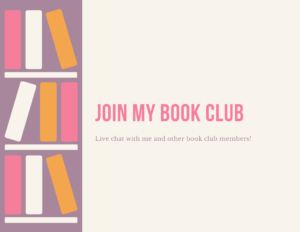Interview with Diane Chamberlain
Q: What gave you the inspiration and drive to start writing?
A. My Dad was a school principal who brought home books for us every week. I read so much that I began narrating my own life in my head. “Diane reluctantly got out of bed, dragged herself to the bathroom and brushed her teeth.” I had an unstoppable imagination and began writing my own little books when I was twelve and I haven’t stopped since.
Q: What part of writing would you say is the most difficult?
A. For me, the hardest part is fitting the pieces of the plot puzzle together. My stories are always so complex that I often write myself into a corner. That first draft, as I figure out how to make what happens engrossing and believable yet at the same time surprising, is my biggest challenge.
Q: You used to run a private psychotherapy clinic. What did you most enjoy about going to work every day there?
A. I worked primarily with teenagers and they were a joy. As a teen myself, I spent a few years in therapy and I felt a kinship with my clients. I loved knowing that I was able to help them the way I’d been helped.
Q: How do your degrees in social work tie in with your novels?
A. Being a social worker gave me insight into what makes people tick. More than anything, though, as a social worker I was a witness to how strong and resilient people can be in the face of crisis and trauma. I borrow those characteristics to use in my novels. I like my characters to ultimately triumph over their problems, but that’s only possible if they have something tough to overcome.
Q: Your first book, Private Relations, won a RITA award for Best Single Title Contemporary Novel. How did you celebrate that achievement?
A. That was such a high for me! Private Relations was not a typical book to win the RITA and I was shocked and thrilled. While sitting at the table waiting for the winners to be announced, I’d taken off my shoes and I was so surprised when my name was called that I forgot to put them back on. I went up on stage and received the RITA from Jude Devereau in bare feet. (There’s a picture on the Gallery page of my website). The RWA conference was held in San Francisco, so my then-husband and I celebrated with a trip down the coast to Big Sur, one of my favorite places.
Q: What do you hope readers take away from your books?
A. More than anything, I hope they will be entertained. I love hearing that someone stayed up all night to finish one of my books. If they feel inspired and touched by my characters, that’s a bonus.
Q: You have been diagnosed with rheumatoid arthritis, which can make typing extremely difficult. I’ve read you sometimes rely on voice recognition to get your writing onto paper. How amazing is it to be able to use this technology?
A. I’m very fortunate that I rarely have to use voice recognition now. The medications for RA have improved to the extent that I can usually type all day long without a problem. I’m glad, though, to know that technology still exists and of course I have it installed on my computer. I did write two books using voice recognition entirely. It’s both wonderful and annoying, because it makes a lot of mistakes as it tries to make sense of what you say. One of my favorite voice recognition mistakes is this: I said “The feeling was quick and unbidden, but welcome nonetheless,” and the voice recognition program typed “Panasonic’s business decisions upset its chicken’s contraceptives.” You can see the problem!
Q: I just received your latest book, The Lies We Told. Just from the synopsis I am already hooked. Where did the plot idea revolving around the two sisters lives come from?
A. I usually start with a situation in mind, and that was the case with The Lies We Told. The situation was that a woman is presumed dead and while her husband and sister grieve for her, they develop a very close relationship, ultimately falling in love, not knowing that their sister and wife is still alive. With that basic idea in mind, I then came up with the storyline that would create those circumstances. In this case, I made all three characters doctors working with a relief agency after a hurricane.
Q: How do you enjoy your ‘me-time?’
A. We have an oceanfront condominium on the North Carolina coast. Although we rent it out during the summer, we enjoy it off and on the rest of the year. I feel rejuvenated when I go there. I love spending time on the beach with my dogs. Just being near the water lifts me up.
Q: What would be your best advice for aspiring writers?
A. Don’t give up, but make sure your writing is the very best it can be before you try to get an agent or a publisher. I think too many writers these days rush their work to publication before it’s ready and then wonder why it’s rejected. I write five drafts of my book before my editor sees it, and another draft after she and I discuss revisions. Get feedback from trusted, honest readers to help you hone your story and polish your work.
Q: What would be your dream vacation?
A. A month in a villa in Tuscany with a group of friends, all of whom love to cook! I’d have my work-in-progress with me, of course. I’m happiest when I have a project, even on vacation.

